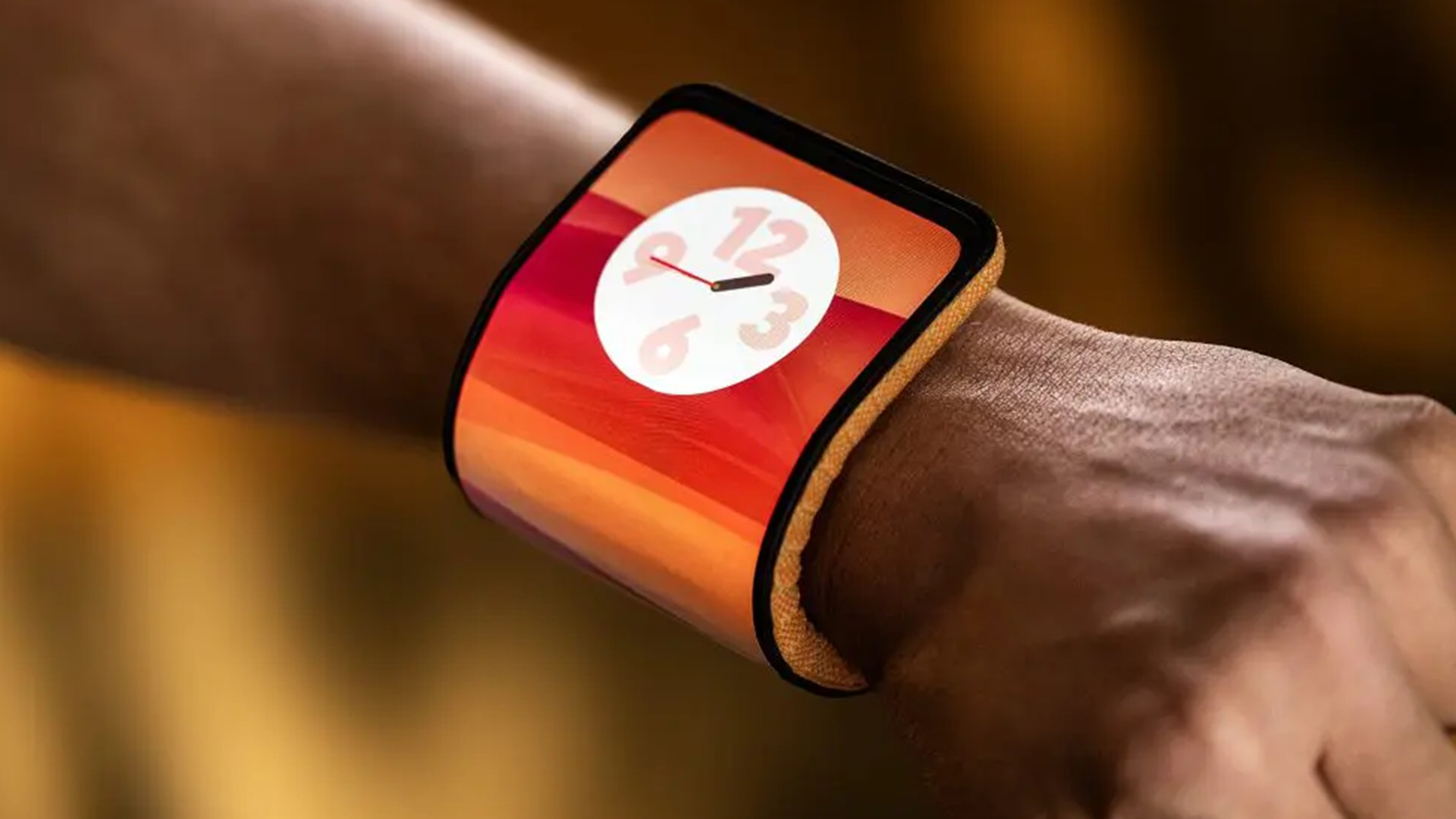Motorola's concept 'bracelet' smartphone could be a clever final form for foldables
Prototype is a 6.9-inch, OLED device that can bend in half

Sign up for breaking news, reviews, opinion, top tech deals, and more.
You are now subscribed
Your newsletter sign-up was successful
Forget foldable phones, the next big trend could be gadgets that bend.
Lenovo, which is currently holding its ninth Tech World event in Austin, Texas, showed off its new collaboration with its subsidiary Motorola: a smartphone that can wrap around your wrist like a watch band.
It’s admittedly quite fascinating to see the tech in action. Lenovo calls its device the “Adaptive Display Concept”, which is comprised of a Full HD Plus resolution (2,228 x 1,080 pixels) pOLED screen that is able to “be bent and shaped into different” forms to meet the user’s needs. There’s no external hinge either as the prototype is a single-screen Android phone. The company explains bending it in half turns the 6.9-inch into one measuring 4.6 inches across. It can stand upright on the bent portion, in an arc, or wrap around a wrist as mentioned earlier.
Unfortunately, that’s all we know about the hardware itself. The Adaptive Display Concept did appear on stage at the Tech World 2023 where the presenter showed off its flexibility by placing it over her arm. Beyond that demonstration, though, both Lenovo and Motorola are keeping their lips sealed tight.
Upcoming AI projects
Alongside the prototype, Lenovo and Motorola also revealed some of the generative AI models they're currently developing. These will reportedly give people the opportunity to add a personal touch to their gadgets.
For example, one model would allow users to “upload or capture a picture of their outfit to then produce… unique AI-generated” wallpapers matching their clothing. With the Adaptive Display Concept, you create your own background by propping it up on a table and taking photographs via hand gestures.
On top of the wallpaper tool, the two are working together to develop a “personal assistant for… PCs and smartphones” called MotoAI. The announcement post claims it’ll be capable of learning a person’s patterns as well as their preferences so it can deliver a “dynamic” experience.
Sign up for breaking news, reviews, opinion, top tech deals, and more.
Next, Motorola’s Doc Scanner will receive an upgrade allowing it to minimize wrinkles ensuring crisp-looking documents. Finally, there is AI Text Summarization which, as the name suggests, can sum up long-form documents or emails into a succinct block of text. To us, its function sounds similar to Chrome’s SGE while browsing tool.
Analysis: Now's the right time
This isn’t the first time either brand has dabbled in bendable hardware. All the way back in 2016, Lenovo debuted its Cplus smartphone. It had the ability to be folded in half although it did have a noticeable “cracking effect”. Obviously, that device never saw the light of day; probably due to its reported fragility. But maybe the company has managed to figure out the tech thanks to its collaboration partner.
Earlier this year, Motorola demonstrated the rollable Rizr concept smartphone, sporting a screen that rolls over the bottom edge. They proved this form factor can be done. Perhaps the two brands are pooling their resources and knowledge together into, what we like to call, the final form of foldables.
Lenovo might have been too ahead of its time with the Cplus. But now could be the right time to develop bendable mobile devices. This could give the pair an edge over rivals like the Galaxy Z Fold5 or the OnePlus Open which offer foldable displays that don't quite match the apparent flexibility of this concept..
It’ll be fascinating to see what Lenovo and Motorola come up with next. We would love to see a multi-jointed device like the Adaptive Display Concept hit store shelves.
Be sure to check out TechRadar’s list of the best foldable phones for 2023.
You might also like

Cesar Cadenas has been writing about the tech industry for several years now specializing in consumer electronics, entertainment devices, Windows, and the gaming industry. But he’s also passionate about smartphones, GPUs, and cybersecurity.